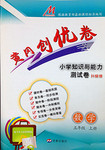题目内容
3.What can we do to help them ?(break)
我们能做什么来帮助他们摆脱困境呢?
3.(to) break away from the difficult position

练习册系列答案
 名校联盟快乐课堂系列答案
名校联盟快乐课堂系列答案 黄冈创优卷系列答案
黄冈创优卷系列答案
相关题目
题目内容
3.What can we do to help them ?(break)
我们能做什么来帮助他们摆脱困境呢?

 名校联盟快乐课堂系列答案
名校联盟快乐课堂系列答案 黄冈创优卷系列答案
黄冈创优卷系列答案